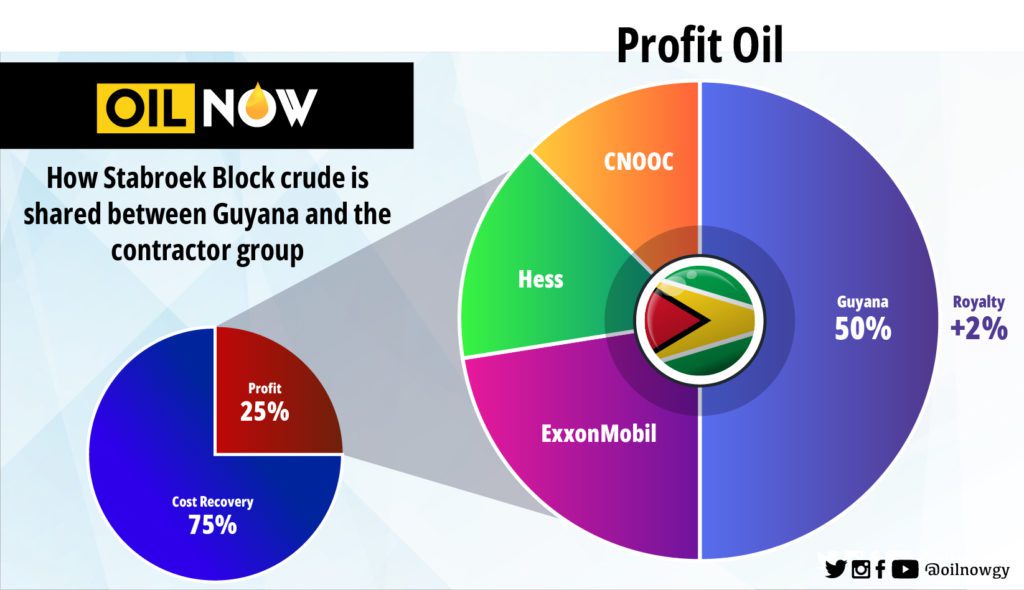Guyana Vice President Bharrat Jagdeo said ExxonMobil and its Stabroek Block partners can never profit more than Guyana from their petroleum operations.
“They can never earn more profit than we would earn,” he said during a June 14 press conference.
Jagdeo had cause to make this statement after one media house compared ExxonMobil’s US$2.6 billion 2023 profit statement, compiled under International Financial Reporting Standards (IFRS), with Guyana’s US$1.6 billion in oil sales and royalties, derived from its production-sharing agreement (PSA) with the Exxon-led consortium.
“There is a difference between expenses to calculate accounting profit versus expenses deductible for compliance with the PSA. They are two different things,” Jagdeo said.
In Exxon’s PSA, 75% of the oil produced is set aside for the IOCs to recoup investments made in their exploration and production operations. Guyana is not required to plug any funds into these activities. 25% remains as profit, to be split 50/50 between Guyana and the Stabroek Block consortium. This means the partners get 12.5%, while 12.5% goes to the government.
This is an equally split profit, royalty is what tips the scale. The consortium is required to pay 2% of gross revenues out of its share of the profit. This effectively reduces the consortium’s profit under the PA accounting to 10.5%, while Guyana gets a 14.5% share.
Jagdeo has made this point before.

This will not be the split forever. At some point, Exxon and its partners will recover a substantial portion of their investments and will not need to recover crude up to the 75% ceiling. In February, ExxonMobil Guyana President, Alistair Routledge, said that this juncture could come as early as 2026/2027. This is when Guyana’s annual revenues from oil sales are expected to increase substantially.
No matter what, Guyana’s revenues from profit oil and royalties will always be more than the combined profit oil revenues of the co-venturers – Exxon, Hess and CNOOC. IFRS statements by the co-venturers may show higher profits, though comparisons between this and the PSA numbers would be problematic, for several reasons.
Even Exxon, in its annual report, also noted this difference. “IFRS requirements differ from how financial activities are accounted for under the Petroleum Agreement (PA), which governs the cost bank and share of production to which each co-venture partner and the government are entitled.”



